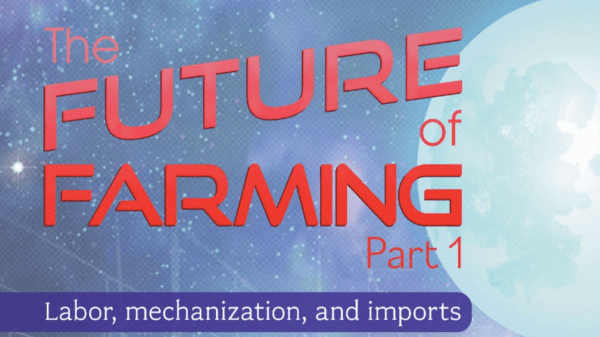The U.S. produce industry is far from united in its sentiments about imports.
Philip Martin, a professor at the University of California at Davis, notes that the United States overall, as well as California agriculture, “have traditionally been free traders, anticipating more opportunities to export rather than perceiving threats from imports.
“However,” he adds, “ag protectionism may spread from its base in the southeastern states as fruit and vegetable imports rise.”
In short, the principal opposition to imported fruit and vegetables has come from Florida and neighboring states.
Until fairly recently, the seasonal differences between these states and Mexico were more or less distinct, limiting any real competition, but an increasing overlap in market windows has led to vehement opposition to imports from growers in this region.
The view from Florida, according to Christina Morton, director of communications for the Maitland, FL-based Florida Fruit and Vegetable Association (FFVA) BB #:153753: “The issue that is front and center for FFVA and our members right now is fair trade,” noting the FFVA continues to urge the Biden administration “to implement a plan that offers immediate, effective, and enforceable trade relief to U.S. specialty crop growers.
“The Florida Department of Agriculture and Consumer Services and the U.S. Department of Agriculture Economic Research Service have documented the extraordinary challenges that domestic growers are experiencing amidst surging imports from Mexico.
“As a country, we simply cannot become reliant on foreign imports to supply our food. Without relief from unfair foreign competition,” Morton continues, “American consumers will be forced to rely on foreign sources for fresh fruits and vegetables—a result that is neither resilient nor secure.”
Some may see Mexican agriculture as a juggernaut running rampant across the United States, but it has problems of its own, for example water.
“The Mexican agricultural sector is growing steadily but is affected by water-related issues such as deficits, pollution, salinity and soil degradation,” concludes a 2021 study conducted by the Netherlands embassy in Mexico. Many growing areas still rely on inefficient furrow irrigation.
In short, Mexico faces many of the same problems as U.S. agriculture—some of them more acute. All things taken into account, its principal advantage is labor costs, although that is hardly insubstantial.
This is an excerpt from the cover story in the November/December 2022 issue of Produce Blueprints Magazine. Click here to read the whole issue.



